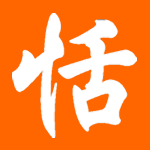Both Erik of Mandarin Tools and I had fortune notes with incorrect Chinese. I don’t care about the lucky numbers, nor the cheap Yoda-like Engrish pep-talks printed on the note, but I do care about the other side – Learn Chinese.
(wrapper)
Mine (shown above) was not as entertaining as what Erik got:
The Chinese pinyin is correct for “pot sticker”, but the printed Chinese 罐屠夫 is something completely different. 罐 is a type of ceramic container, similar to a jar. 屠夫 is butcher.
Shame on you, Wonton Food Inc. of Brooklyn, NY 11206!
Use "HANZI2006" to save 10% on any t-shirt purchase at Jlist.com, and save 25% for 3 shirts or more.


Ho no!! This is bad!! So some poor person trying to learn Chinese can be mislead! What is even worse (for the company) is the fact that their product has been put on the web for EVERYONE to see (as this is quite popular and transnational!). Ah the shame. oh well. Poo on them. Hurah for Tian!!! Hope the company hangs their heads in shame.
ReplyDeleteif you're learning Chinese from fortune cookies... that's part of the problem.
ReplyDeleteI went out with my GF's family and found a mistake in a fortune cookie too. this was in Boston. I pointed it out to them and gained some points. (i'm white, they're Chinese)
That is so funny!! I have a Chinese friend (I'm White and British) and she thinks it's great I'm learning Chinese. I do wonder when ever I see any Chinese writing if it correct, especially when it is a tattoo on someones body....
ReplyDeleteThe second one is hilarious, I'm still laughing. Pot sticker, jar butcher, it's all good!
ReplyDeleteThe great thing about the second one is that they were actually trying to translate "pot sticker". Guan can be pot and in English another name for a butcher is "sticker" so it could be "pot sticker" but not the one they meant.
ReplyDeletesince we're into correcting chinese / kanji here, let's be stricter with the explanation. 鍋 ('guo') = wok, as in the kitchen utensil commonly used for frying; 貼 ('tie') = to stick or something that sticks. when used together as a 詞語 = phrase, 鍋貼 = fried dumpling.
ReplyDeletejust fyi, fortune cookies is never part of the chinese cuisine except in the states...
what is a "pot sticker"? Is that a US term? Never heard of this thing in Australia.
ReplyDeleteAnd I've never heard a butcher called a sticker before.
ReplyDeletePotstickers are fried dumplings.
ReplyDeletethanks notfound.
ReplyDeleteWhat is most bizarre about the wrapper for doctor is that it would have been harder to do it wrong than to type the word straight in.
"The Chinese pinyin is correct for 'pot sticker'"
ReplyDeleteWell, kinda. Properly speaking, it should be "guōtiē" (or "guotie", if tone marks are being omitted), not "Guo-tie".
Is there a difference between guo tie and fried wan tan? I never heard guo tie until I came to the US (I'm Malaysian Chinese.)
ReplyDeletexeno, you'll hear this term if you go to east malaysia, in the state of Sabah for example
ReplyDeleteSo what is the correct pinyin for "medical doctor"?
ReplyDeletedoctor: yi1 sheng1
ReplyDeleteoh, and sometimes dai4 fu5 大夫 is used for doctor as well
ReplyDeletethe chinese characters on the slip for 'doctor' appear to have been mangled by cropping. perhaps the piece of paper was produced with a word processor, and the chinese words cut-and-pasted as an image, but cropping of the image and lack of proofreading led to the oddity that's being passed off as chinese.
ReplyDeleteNot to totally break your balls here Tian, but if we're correcting language here should your first line read "expect" and not "except." I may be wrong, but it seemed like the meaning you were going for was expect.
ReplyDeleteThanks Pengyou, I have corrected the typo.
ReplyDeleteI've gotten the same incorrect "child" ==> "medical doctor" fortune twice in a month (once in Cincinnati, OH and once in Raleigh, NC). Must have been a bad run at Wonton Food Inc.
ReplyDeleteBut translating "sticker" into "butcher" is just too sophisticated to be a "mistake." (Unless someone can point me to some automatic translation software that contains this mistake)
ReplyDeleteThis has the feel of a joke that's being played by the person who did the translation. Was the person trying to make fun of the Chinese by putting in this translation as a comment on the numerous examples of "Chinglish" that can be seen all over the Web? (Kind of a "if the Chinese butcher English then we'll butcher Chinese" thing?)
It's a sophisticated joke, but rather mean-spirited. And too bad that the Chinese owners didn't even check the translations.